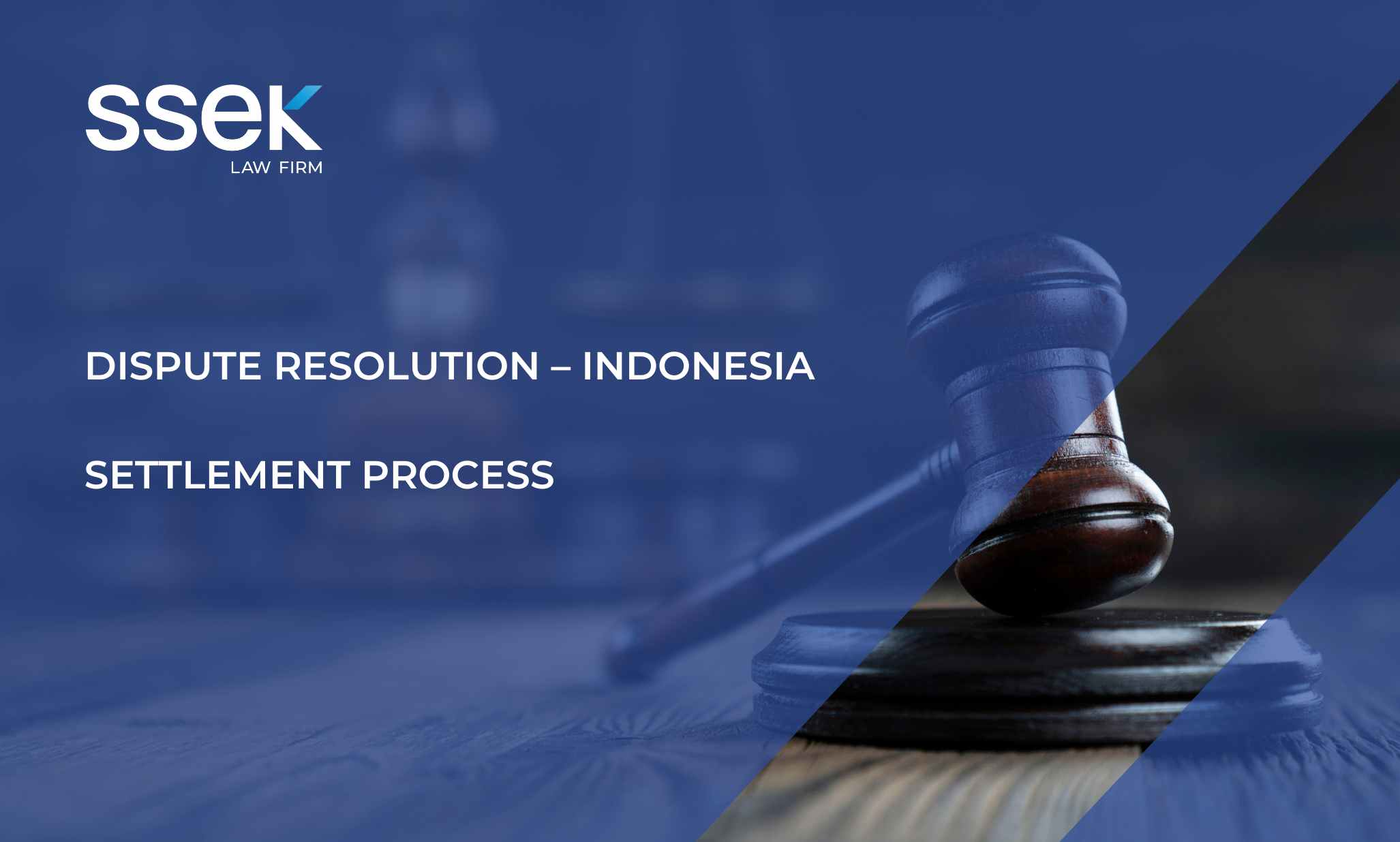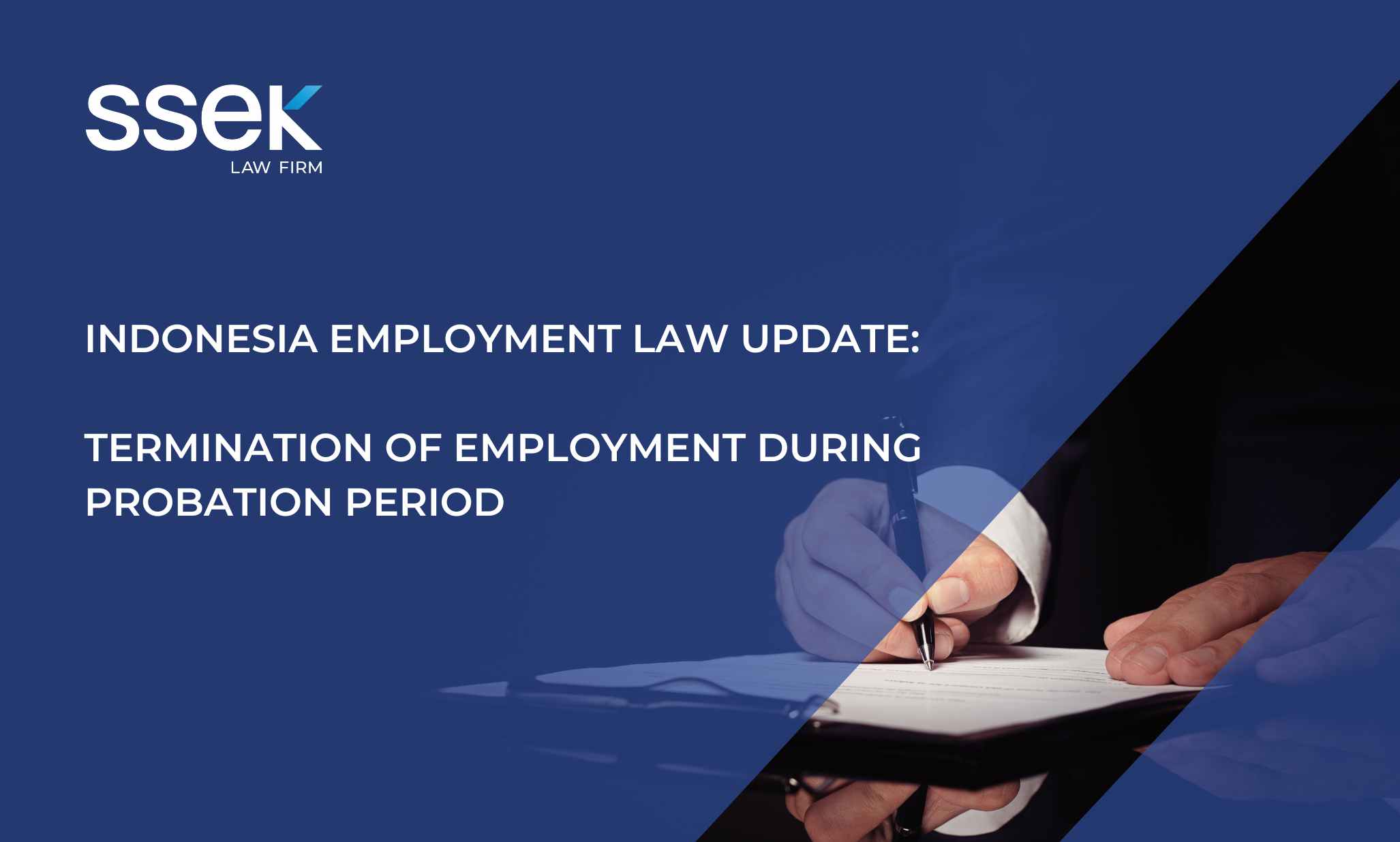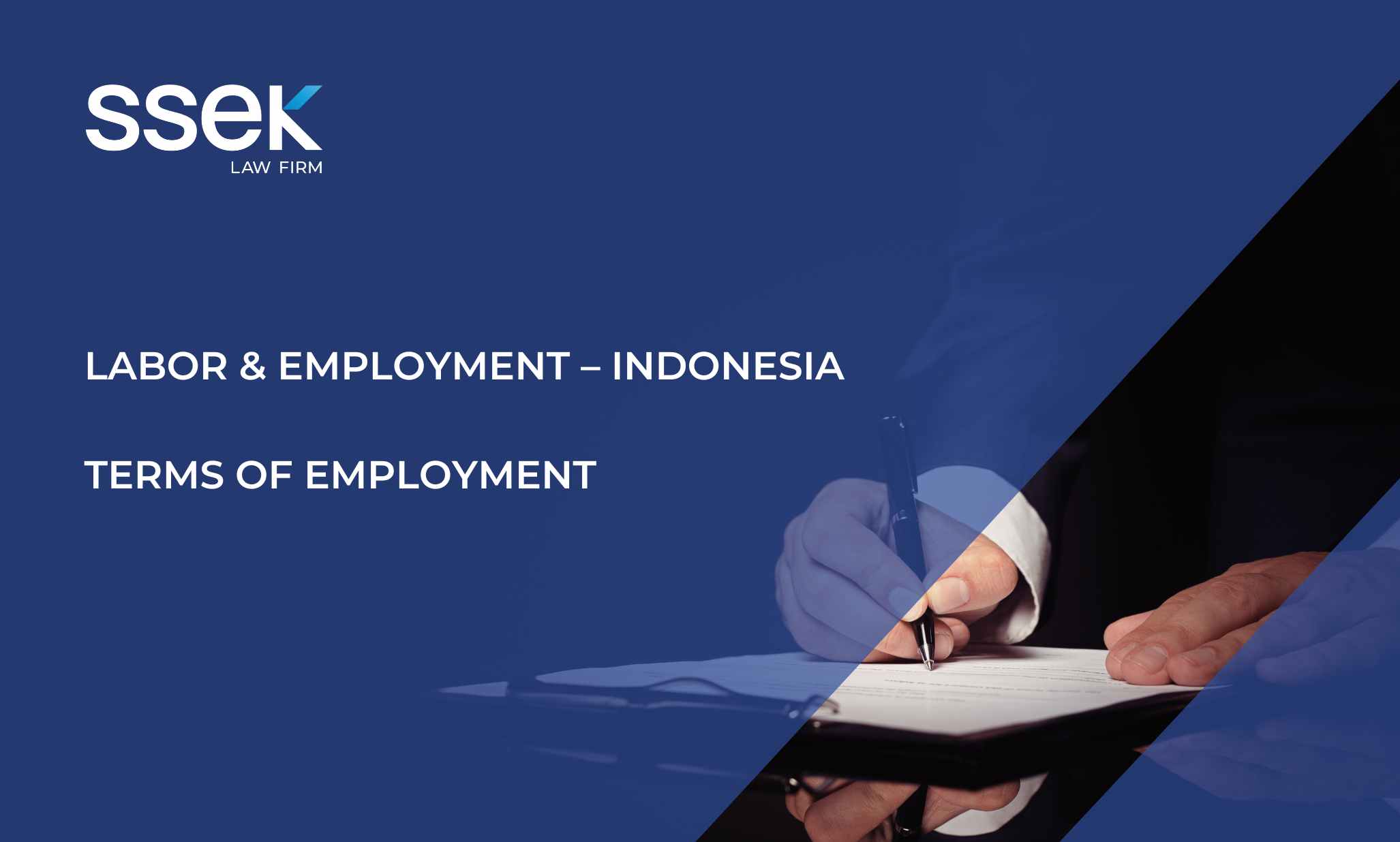

In an unexpected development with profound implications, the Constitutional Court of the Republic of Indonesia on November 13, 2012, announced a decision disbanding BP MIGAS, the upstream regulator of the petroleum industry in Indonesia. In response, President Susilo Bambang Yudhoyono that same day issued Presidential Regulation No. 95 Year 2012, which transferred the responsibilities of BP MIGAS to the Minister of Energy and Mineral Resources ("MEMR").
Both the Constitutional Court decision and Presidential Regulation No. 95 Year 2012 provide that the transfer of BP MIGAS' responsibilities to the MEMR is temporary while the Government amends Law No. 22 Year 2001 regarding Oil and Natural Gas (the "Oil & Gas Law") to accommodate the Constitutional Court decision. The Constitutional Court decision also provides that existing Cooperation/Production Sharing Contracts ("PSCs") remain in effect until they expire or until such other date as may be agreed.
The Presidential Regulation similarly provides that all existing PSCs remain in effect until their expiry. The Presidential Regulation also provides that all operating processes handled by BP MIGAS will forthwith be handled by MEMR. As a result, BP MIGAS effectively continues, at least in the short term, as a unit of MEMR.
Ongoing upstream oil and gas activities in Indonesia will likely suffer an immediate material disruption until MEMR issues formal regulations granting the unit the appropriate authority.
PSC renewals and tenders will also likely suffer disruption while the Government contemplates how they are to be treated in the new regulatory regime mandated by the Constitutional Court decision. We understand that MEMR has already begun issuing some of the necessary implementing regulations for Presidential Regulation No. 95.
The Constitutional Court's legal reasoning in disbanding BP MIGAS is closely tied to Indonesian post-independence political and economic thought. The Constitutional Court clearly believes that, in disbanding BP MIGAS, it is following precedent and implementing very basic constitutional principles. In several places, the Constitutional Court refers extensively to its own previous decision reviewing the Oil & Gas Law issued in 2004.
At one point it also quotes a lengthy excerpt from a pamphlet by Mohammad Hatta, one of the Founding Fathers and the first Vice President of the Republic of Indonesia, regarding the nature of state power over natural resources. To summarize, in its decision announced November 13, 2012, the Constitutional Court ruled that, under Article 33(3) of the Indonesian Constitution, the State's authority over petroleum natural resources is absolute, to be exercised "for the maximal welfare of the people," and cannot be proscribed or restricted.
The exact words of Article 33(3) of the Indonesian Constitution are as follows:
"The earth and water and the natural wealth which they contain are under the power of the State and utilized for the maximal welfare of the people."
Note: The sense in which the word power is used in Article 33(3) of the Indonesian Constitution is not capable of easy translation into English and is capable of multiple interpretations in English. Where BP MIGAS fell afoul of the Constitutional Court's legal reasoning is that it, according to the Constitutional Court, was a legal entity, meaning that it was an organ owned by the Government and not, strictly speaking, part of the Government, but nonetheless exercised some of the authority of the Government pursuant to the Oil & Gas Law in entering into and administering PSCs.
In the view of the Constitutional Court, the fact that BP MIGAS was a legal entity exercising some of the authority of the Government had an important implication, namely the Government was prevented from exercising directly its full authority over petroleum resources. By law, the Government could not exercise the authority that had been given to BP MIGAS.
In its decision, the Constitutional Court ruled that the Government cannot, in a law, prohibit itself from exercising some or all of its authority over petroleum resources. Going forward, the Government will likely have to posit cost recovery and other regulatory authority in the upstream oil and gas industry with MEMR or another part of the Government.
In the view of the Constitutional Court, the interposition of BP MIGAS as the representation of the State in relations with PSC holders, so that the State did not itself directly exercise this authority, had the effect of degrading the power of the State over petroleum resources and prevented the State's power from being exercised effectively for the maximal welfare of the people.
In the Constitutional Court's own words:
"At a minimum, this occurred for three reasons: First, the Government could not directly exercise management over or appoint directly a BUMN to manage directly an entire oil and natural gas work area in the upstream sector Second, once BP MIGAS signed a PSC, at that moment as well, the State became bound by the entire contents of the PSC, meaning, the State lost its freedom to make regulations or policies contrary to the contents of the PSC Third, the non-maximizing of State benefits for the maximal welfare of the people, because of the potential for the control of the larger share of profits from oil and natural gas by Permanent Business Establishments or Private Legal Entities achieved based on principles of healthy, reasonable and transparent business competition."
The above passage is only one of several in which the Constitutional Court disparaged the PSC system as currently managed by BP MIGAS under the Oil & Gas Law. In another passage, the Constitutional Court said:
"In a PSC, BP MIGAS acted as the representative of the Government as a party to the PSC with Commercial Entities or Permanent Business Establishments managing oil and natural gas. In this position, the relationship between BP MIGAS (the State) and the Commercial Entities or Permanent Business Establishments was one characterized as a private civil relationship, i.e., placing the position of the State and the Commercial Entities or Permanent Business Establishments managing oil and natural gas in the position of equals. For this reason, when the contract was signed, the State became bound by the contents of the PSC. As a result, the State lost its discretion to make regulations in the interest of the people which were contrary to the contents of the PSC, such that the State lost its sovereignty in relation to the control of natural resources, i.e., its sovereignty to regulate oil and natural gas in a manner contrary to the contents of the PSC. While in fact the State, as the representation of the people in the control of natural resources, must have the flexibility to make rules which bring maximal prosperity to the people. In the view of the Court, the relationship between the State and the private sector in the management of natural resources cannot be conducted on the basis of private civil relations, but must be a relationship that is public in nature, i.e., the grant of a concession or license which is fully under the power and control of the State."
In essence, the Constitutional Court decision seems to require the Government to exercise its authority over petroleum resources by means of a concession or licensing regime in which its authority is neither proscribed nor restricted. A concession or license holder may enter into a PSC by which it farms in other participants and sets out the terms by which it and they will operate the concession area, but the concession or license, and hence the PSC, will at all times be subject to the absolute authority of the Government to be exercised by the Government itself through its own regulations.
The Constitutional Court decision recognizes that there is a place for private sector participation, foreign or national, in upstream petroleum exploration and production activities. The Constitutional Court decision expressly states that, under the Indonesian Constitution, the private sector may participate in upstream petroleum exploration and production activities to the extent that the State lacks the necessary technical, management or financial resources. The Constitutional Court did not set guidelines for determining when the State lacks the necessary technical, management or financial resources. The relevant political and commercial discretion will, depending on the shape of future amendments to the Oil & Gas Law and implementing regulations, rest with the Government.
That said, the Constitutional Court also posits a clear preference for BUMNs over private sector entities, foreign or national, in the management of natural resources. The legal argument here is that the profits of a BUMN, unlike a private sector entity, belong to the State, and hence are more consistent with the mandate under Article 33(3) of the Constitution that natural resources be managed for the maximal prosperity of the people.
The Constitutional Court states in its decision:
"In the view of the Court, direct management by the State or by business entities owned by the State is what is expected by Article 33 of the 1945 Constitution. Only under circumstances in which the state does not possess the ability or lacks the ability, whether in capital, technology or management, to manage oil and natural gas resources, may the management of natural resources be surrendered to private entities."
In another passage, the Constitutional Court states that, to avoid a construction of the State's power over natural resources, which is unconstitutional:
"the State may form or appoint a BUMN to be granted a concession to manage oil and natural gas in Indonesia's legal Mining Area or in a Work Area, so that the BUMN then enters into a PSC with Commercial Entities or Permanent Business Establishments, so that the relationship is no longer between the State and the Commercial Entities or the Permanent Business Establishments, but between a Commercial Entity and [other] Commercial Entities or Permanent Business Establishments."
The Constitutional Court also appears to take this principle one step further by mandating the means by which the private sector may be involved in the management of natural resources:
"In exercising State authority over oil and natural gas resources, the Government performs administrative acts over oil and natural gas resources by granting concessions to one or more BUMNs to manage oil and natural gas business activities in the upstream sector. These BUMNs then enter into PSCs with regional government state-owned enterprises, cooperatives, small businesses, private legal entities or permanent establishments. With this model, all aspects of State authority as mandated by Article 33 of the 1945 Constitution are actualized in implementation."
The Constitutional Court thus states a strong preference, and perhaps even a legal mandate, that future concessions and licenses be issued to BUMNs like Pertamina. These BUMNs may in turn farm in other participants, including private sector participants, by means of a PSC to the extent necessary to obtain capital, technology or management resources which the State and the BUMNs do not possess.
However, unlike the PSCs of today, the new PSCs will bind only their immediate contracting parties. They will not bind the Government or supersede the Government's authority to apply its regulation requirements contrary to the terms of a PSC.
It is widely understood that the Government is in the process of drafting a new oil and gas law. Given the Constitutional Court decision, and the strategic position in which it places Pertamina and perhaps other future BUMNs as potential concession holders and PSC counterparties, it will be critically important to see how national preferences are promoted or restrained in the coming regulatory regime.
One final point: In this and other decisions, the Constitutional Court recognizes and has recognized that its decisions are forward looking and do not have retroactive effect. This means that we can now all look forward to a lengthy debate as to whether this means that the terms of existing PSCs are grandfathered as a matter of law or are now subject to the Government's constitutionally-mandated absolute authority over natural resources.
About SSEK
SSEK is a leading full-service corporate and commercial law firm based in Jakarta, Indonesia. Since its founding in 1992, SSEK has grown to one of the largest and most highly regarded corporate law firms in Indonesia. SSEK is recognized by independent legal directories including Chambers & Partners, The Legal 500 and Asia Law as a leading law firm in Indonesia across all major practice areas including banking and finance, capital markets, corporate law and mergers and acquisitions, construction and real estates, energy and natural resources, IT and telecommunications, labor and employment, project finance, restructuring and insolvency, and shipping.
This publication is intended for informational purposes only and does not constitute legal advice. Any reliance on the material contained herein is at the user's own risk. You should contact a lawyer in your jurisdiction if you require legal advice. All SSEK publications are copyrighted and may not be reproduced without the express written consent of SSEK.









